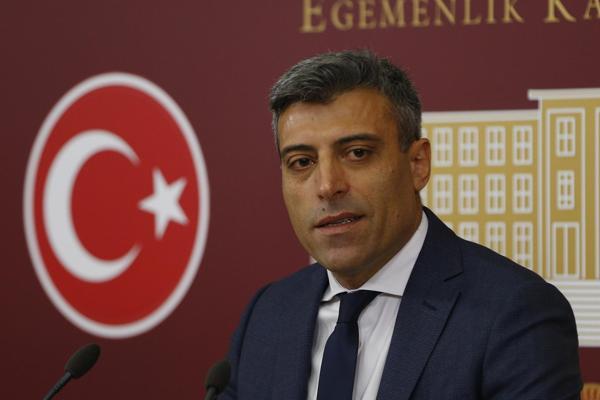CHP's lawmaker challenges party leader after debate on Muslim call to prayer
ANKARA - Anadolu Agency


Under fire for his proposal to change the language of the Muslim call to prayer, a Turkish main opposition lawmaker declared his intention to capture the party leadership.
"You know I’m getting ready for the chairmanship, you will see me as an opponent," Öztürk Yılmaz, Republican People's Party (CHP) lawmaker for the eastern Ardahan province, told reporters in parliament Nov. 9.
Yılmaz accused CHP leader Kemal Kılıçdaroğlu of opposing him out of fear he would attract more support.
Yılmaz's remarks came after the CHP's announcement on Nov. 8 that he would face the party's disciplinary committee for possible expulsion.
Yılmaz was referred to the committee because he appeared on television without permission, in violation of party rules.
In a recent appearance, Yılmaz argued that the Muslim call to prayer, or adhan, should be changed from Arabic to Turkish.
His remarks were slammed by the party administration as well as CHP lawmakers.
Yılmaz stressed that he was "backing up all the things" he said on the program, adding that "our beautiful language should be spoken everywhere."
From 1932 to 1950, in Turkey’s single-party era of CHP rule, the adhan was done in Turkish, but then-Prime Minister Adnan Menderes ended the practice in 1950.
Defeated coup
Yılmaz also criticized Kılıçdaroğlu’s actions during the night of the July 2016 defeated coup.
Yılmaz said that he called Kılıçdaroğlu the night of the attempted coup -- July 16 -- and told him: "Give a [media] interview first, and you should condemn the coup from the start."
But Kılıçdaroğlu instead took hours to give an interview, said Yılmaz.
Kılıçdaroğlu spent the night of the defeated coup in Istanbul, at the home of the mayor of the Bakirkoy district.
The Fetullahist Terrorist Organization (FETÖ) and its U.S.-based leader Fetullah Gülen orchestrated the defeated coup of July 15, 2016, which left 251 people martyred and nearly 2,200 injured.
Ankara also accuses FETÖ of being behind a long-running campaign to overthrow the state through the infiltration of Turkish institutions, particularly the military, police, and judiciary.
